From Soup to Nuts: An interview with Joel McHale
Joel McHale on Community's cancellation, gay marriage and the absolute, utter worst shows on television

“I’m getting older, so I hope I’m still a gay sex symbol!” says Joel McHale. “If someone’s finding me attractive, I’ll take it!”
The boyish 43-year-old with the mischievous smirk has little to worry about when it comes to sex appeal. Though he does admit that keeping fit is important to him.
“I go to the gayest gym in Hollywood,” he says over the course of an hour-long phone conversation from the L.A.-based offices of The Soup. “I go in there thinking I’m in shape, and then I go in and I’m like, ‘Ooh, I am not in shape. I need to work harder.'”
Since 2004, McHale has hosted The Soup, E! Entertainment Television’s popular weekly round-up of all things wrong on TV, particularly of the reality sort.
“We have the greatest staff of all time,” he crows of his Soup associates. “A lot of them have been here a long time and watch tons of television. I don’t know how they do it. I used to do it and I thought I was going to blow my brains out. Cause when we started, there were like just 5 of us and we had to watch everything. So now we have 14 and it’s a lot more manageable. But we have great writers and great producers and they make me look fantastic every week.”
McHale’s snarky, sarcastic delivery suits The Soup‘s format perfectly. But his star truly went supernova in 2009 after he was cast as the vain, sardonic Jeff Winger in Dan Harman’s NBC-sitcom, Community. Set in a fictitious Colorado community college, McHale helmed a perfect ensemble cast, and the decidedly offbeat show — which lampooned pop culture in hilariously inventive ways — earned a devoted cult following. Enough so, that after the network cancelled it, Yahoo stepped in and produced a sixth and final season, increasing the show’s budget in the process.
In 2014, McHale was handed the cherished keys to the comic monologue at the White House Correspondent’s Dinner, where he was both pointed and prescient (“Will Donald Trump run again? And the answer is, ‘Does that thing on his head crap in the woods?'”) and recently hosted the ESPY awards, which honored Caitlyn Jenner, garnering record ratings as a result. At the time of the interview, Jenner’s show, I Am Cait, had not yet premiered. But McHale promised it would very much be on The Soup‘s menu. “We’re going to obviously pay very close attention to the show,” he says.
Very little is off-limits for this master at scorching pop culture figures — who will perform a night of stand-up at The Warner Theatre on Saturday, August 8 — including Bill Cosby. Calling out UFC champion Ronda Rousey at the ESPYs, McHale raised a few eyebrows when he joked, “She’s knocked out more women than Bill Cosby.”
Recently, McHale’s acting career has taken a turn into dramatic movies, something he acknowledges has been harder to break into since Hollywood views him as a comedic actor. His most notable turn was as a cop in the supernatural horror film, Deliver Us From Evil and he’s part of the main cast for the as yet to be titled X-Files revival, a miniseries scheduled to air on Fox in January 2016. (IMDB has McHale listed as appearing in all six episodes.) Not bad for a man whose first acting gig was in a first grade adaptation of Disney’s theme-park ride, “It’s a Small World (After All).”
“I played most of the parts,” he says. “My parents said I just kind of lit up on stage. I was having a very good time.”
Clearly, he still is.
METRO WEEKLY: It’s an honor to meet you.
JOEL McHALE: It’s an honor to meet you, electronically.
MW: Have they told you anything about the magazine?
McHALE: No. I assume it’s made of paper?
MW: That, and we’re an LGBT publication in Washington, D.C.
McHALE: Yes! I’m gay, so this works out great! Just let the Caitlyn questions roll, my friend.
MW: We’ll get to that.
McHALE: You bet you will!
MW: It was interesting to find out you were born in Rome.
McHALE: Yes, my father was a Roman soldier. He guarded St. Paul. He is very old.
MW: But you were raised in Seattle mainly.
McHALE: Yes. The definite formative years were in Seattle.
MW: What got you interested in the performing arts?
McHALE: I was only good at two things — sports and performing and I just felt a need to do both of them. I don’t know why. It’s just a thing that God put in my brain to do. It sounds strange but I was comfortable doing it. I remember thinking even in high school, “I’m going to keep doing this until someone tells me to stop.”
MW: And no one told you to stop.
McHALE: Oh, shitloads of people have, but no one important.
MW: Were the parents supportive of the choice?
McHALE: My parents are practical people and so they were like, “You should have a backup plan. Like be a real estate agent on the side.” I never had a backup plan. It was more like, “This is what I’m going to do. I know I can do it and this is the plan.” I treated it like I was a Japanese general. If I lost the battle I would just stick a small Samurai sword in my stomach and do the honorable thing.
MW: When we interview a person who isn’t gay…
McHALE: Yes I was gay.
MW: You were gay.
McHALE: I was gay the whole time.
MW: The whole time.
McHALE: But my partner has a vagina, so I’m not as gay as you think.
MW: Do you have a story about the first time someone came out to you?
McHALE: Hmmm. Boy. I had a cousin come out to me. I guess it was surprising because he had only dated women. I grew up in Seattle where everyone is pretty cool, so when he told me, I was kind of like “Uh, oh great. Cool.” I think for a moment I was like, “Well, you only dated women, so I guess you didn’t like that.” [Laughs.] I didn’t have that big a reaction. I was like, “Okay, cool. I look forward to meet who you’re dating.” So my cousin is much happier. He has been for years.
There was never one where someone was like, “I’m gay.” Most of the time when people have said it, I was like, “Totally, I know.” So I’ve had a humdrum reaction to my friends coming out to me: “Yeah, all right, great. Now can we go try this IPA that I’ve been wanting to drink?” Not a great answer, I know, but I think in this day and age, it’s kind of great now that it’s not a shocking thing, which is how it should be. When gay marriage got passed it was kind of like “Yeah, fuck yeah, of course!” It was like, “Why didn’t someone build a bridge between those islands? We’ve been using a boat the whole time.” It should have always been there.
This is a terrible analogy, but say you have a house that has a terrible gutter system and you replace the gutter system and you go “Hey, look I replaced the gutter system!” And people are like, “Yeah, you should have done that years ago!” It just seemed so ridiculous that it wasn’t legal. It was more “It’s about time” than it was a surprise.
MW: Of course, my neurotic concern is that one day we’ll have an administration that forces some kind of repeal.
McHALE: I would say the chances of it ever being repealed are about as good as me growing a tail.
MW: That would be interesting — if you grew a tail.
McHALE: I would probably have better balance.
MW: You could have your own reality show.
McHALE: And if it was a tail I could pick stuff up with, that’d be great!
MW: Back to your career. The Soup happens. Community happens. Suddenly you’re a recognizable celebrity, a star. Is there a discernible feeling to that change? Can you quantify it?
McHALE: There’s never been a feeling like that for me. I spent so much of my life, as I think so many actors do, trying to get work. You would live from job to job to job — it’s in your DNA, at least it is in mine, and constantly go, “What’s next?” So I still have that insecurity of you’re only kind of good as your last job, which sounds like a very unhappy way to go through life. I try to turn it off and go, “I’m so insanely blessed that God was like ‘I’m gonna let you do something you’re good at, something that you want to do, you lucky son-of-a-bitch.'”
For me it’s little moments — I call them “mountaintop moments” where you take a second and go, “Oh, I’m at the top of a mountain and this is such a cool moment.” Like the White House Correspondent’s Dinner, where I’m sitting with Michelle Obama and we’re just chatting and I’m about to swallow my throat I’m so nervous. And then to get up there and tell those jokes and have the President say he liked them. That was one of those moments.
Or when I was on Sesame Street. I thought, “I’ve reached some point in my career where I get to be on Sesame Street as myself somehow. I don’t know how it happened, but it’s so damn cool.” Or I get to be in a scene with Steve Martin and just chat with him and I think, “Damn, this is a thing that happened to me. How did this happen? What the hell’s going on?”
So it’s not a feeling. It’s just more moments. I love that I get to do multiple jobs. People are always like, “You work a lot.” I’m like, “Yeah, because I love it.” I spent so much time not working where I thought, “Just give me a chance, just hand me the ball and I will run and you won’t see me again. I’ll just keep running to the eternal end zone.” I thank God every day that I can do this. I cannot believe how lucky and blessed I am to be able to do something that I love and somebody pays me well for it. It seems like a crime.

MW: I feel you’re one of the few actors to successfully straddle very different styles of performing. Let me put it this way: I totally forget it’s you when I watch Community. I fully believe your character. I forget about the fact that you host this other show as a personification of yourself.
McHALE: Thank you — I’m blushing. But you know my goal, when I came here, was to act. The Soup was just a pilot presentation. We did three minutes of jokes and they showed them to a room of executives who said, “How much is it going to cost? Oh. Nothing? Yes, we’ll put it on the air.”
MW: But you stuck with it even after landing Community.
McHALE: I kept doing it because the schedule kept working out and it’s all my friends and I love doing it.
MW: A lot of actors come under fire when they reach past what they’re perceived to be good at. Society has a tendency to pigeonhole performers.
McHALE: I agree. For whatever reason in acting, it’s like, “Oh, you’re the funny guy, and you just be funny, so go ahead and do that.” That’s the sort of like, you can do so many more things. And there have been so many times that has been proven. Look at someone like Robert DeNiro, who clearly is the greatest living American dramatic actor. If someone had said, “Oh, he’ll make all his money being hilarious,” you’d have been like, “I don’t think so.” And that’s what happened.
It took a lot of convincing to let me play a cop that beats people up in Deliver Us From Evil. The [executives were] like, “The Soup guy? No, we don’t think so.” I was like, “I can totally do this. Let me do it.”
MW: Let’s talk about Community. It always existed on kind of the precipice. Obviously, NBC canceled it and it moved to Yahoo and found another life with a sixth season.
McHALE: Yahoo paid tons of money for it because they knew that people were watching it. NBC just never liked it. They didn’t know what it was. They were always terrified and confused about what it was and we were always at the — as [creator] Dan Harmon called it — the “Vietnam of Time Slots.” We were up against the Big Bang Theory, easily the most popular show on television. [CBS head] Les Moonves even said to me, “Why would they put you on against us? Why wouldn’t it be alternative programming?” And I was like, “I don’t know. It doesn’t make any sense to me, either.” But what drew me to the show was the uniqueness of Dan’s voice. Every week was like a whole different world.
Our budget was decreased every year we were at NBC and Yahoo significantly increased it and gave us basically no notes, according to Dan. The weird part is that NBC would send an executive to listen to the table reads when we would have them and I’d be like, “What are you doing here? What do you care? You canceled us.” I wasn’t mad. I just always joked. I was like, “What are you doing? What do you care?”
MW: Is it getting another season on Yahoo?
McHALE: No. They wanted to. But all of our contracts were up after six years. All the actors on the show, almost without exception — their stock has risen significantly and it’s out of the pay rate that is affordable to make the show. So you’re not going to be able to get Alison Brie or Gillian Jacobs at a normal television salary anymore. There is just not enough money to be able to pay for the show.
MW: It’s interesting because so much has changed with how we watch television in the past decade. I find this whole new landscape of DVRs and streaming-on-demand remarkable.
McHALE: It has made television so much better. We are watching the best television ever. Obviously I host The Soup, so some of the television is also the worst ever.
MW: What is the worst television show out there right now?
McHALE: Well, it’s rotating. Since we started The Soup, there’s been horrifying shows you can’t believe it. There’s also inane shows. But the worst television? Like the most amoral? Jeez, it’s hard to say. There was a show that was on earlier this year called Sex Box. They would have a counselor with some people who were having either relationship problems or marital problems, and if the counseling went well, then they would go into this box that was on the stage and fuck. And then they would come out. And they would go, “Yup, okay.” They pulled it because mostly the counselor was being so irresponsible. The [advice] was based on nothing that was good or medically sound. It was a really bad show.
Right now, there are like 12 shows on how to find the Sasquatch, and that’s crazy. It’s great for us. Obviously they’ll never find Bigfoot. But it’s shows like Big Brother that drive me out of my mind, that I think are a little slice of hell, where people are just whispering and conspiring against each other. It’s just about stirring up peoples’ hatred of each other.
It gets worse with stuff like “The Housewives of This and That,” where it’s just catty hatred. The producers want there to be fights, and it exposes the ugly side of humanity.
I think they fill the void for soap operas that are all fading away. These have taken their places. And I think that becomes something much sicker because soap operas are vapid, but they’re just play acting. With these, it’s supposedly real people really getting arrested and really going to jail or like in the Beverly Hills one, the husband committed suicide. On red carpets, people would be like, “Can you comment on the suicide?” I was like, “You know, maybe they shouldn’t have had cameras pointed at them six months or a year beforehand when clearly he was not in a good place.” But they still allow these cameras into their lives and no one seems to question that at all. That’s terrifying.
MW: What does it say about society that we enjoy watching people rip each other apart?
McHALE: I don’t know. It’s not good. I think people can be very great and appreciate and love and all that stuff but we’re probably inherently not great. We’re just inherently selfish just like any other human beings on the planet. It feeds a sadism in us.
MW: Is there anything off limits to you on The Soup?
McHALE: No, there’s nothing off limits but there’s a whole shit load of stuff that isn’t funny. When people bring up stuff like, “Are you going to cover that story about the baby dying?” I’ll be like, “What? No! Are you crazy?! That sounds terrible. It’s not funny and that’s not what the show is about.” There are times when we will take sad stories — like when Whitney Houston or Michael Jackson died — and make fun of the coverage because it was so insane. So even though the subject matter is touchy and sad, you can make fun of the coverage. We are covering the coverage, basically.
MW: Let’s talk about the ESPY awards.
McHALE: Yeah, boy that was fun.
MW: Bill Cosby wasn’t off limits for you —
McHALE: No, they allowed me to tell that. And we said, “Victor Espinoza rode America Pharoah to a triple crown, but for whipping the three-year old he was suspended by the NFL for a year.” And they let that in. It was great.
MW: Do you present the jokes to them before you start?
McHALE: Oh, yeah, you have to. They see the jokes, and they absolutely are scrutinized and censored. And we had to fight for the whipping joke. Amazingly the Bill Cosby joke was always in. It came about a week before the show and ABC was very cool about it. They did not like the whipping joke, and they basically cut it. Then Jon Skipper who is the head of ESPN asked the ABC President, “Hey, we need that joke. Joel wants to tell it.” And they went, “Okay.” It showed how cool both networks were.
MW: Do you ever get backlash after a monologue like that?
McHALE: No. Not like a real backlash. People have been upset about jokes that I’ve told. Twitter is a place of trolling hate, so it doesn’t matter what you do, people are going to be incensed about something. Twitter is anonymous, so people can say anything they want. And when it’s anonymous, people become evil — or they let their evil out — and it’s queasy: “I need to type this out. I need to go to my computer and type this and let this person know.” But it really is that age-old thing where if you’re not upsetting 10 percent of your audience, you’re not doing your job.
MW: So, Caitlyn.
McHALE: Here we go!
MW: A huge moment for both the awards and for her and for everybody. What was it like meeting her?
McHALE: I didn’t meet her. Backstage it’s not like just me on a stool and a guy going “Hey, you’re on.” It’s a huge backstage. On purpose. They have these interviews all set up. It’s a cluster-f of media and equipment and people. There’s probably 200 people backstage at any given moment and when Caitlyn was coming off, I was going on, so there was no time.
MW: Well, what do you think of everything that’s happened with Jenner in the past few months?
McHALE: Boy, for Caitlyn it’s been crazy. I mean, the ratings for the ESPYs were through the roof and you know that moment was incredible. We would make so much fun of Bruce Jenner on Keeping Up with the Kardashians because he would say something like, “Hey, Khloe, you’re fat.” And we would say, “Don’t say that about Khloe!” When Bruce became Caitlyn that explained an awful lot about what was happening. It definitely changed the show — and it is hard to take attention away from Kim Kardashian.
MW: Is Caitlyn’s show fair game?
McHALE: Absolutely. Anybody who’s getting paid to be on television is fair game. We haven’t seen the episodes yet but I think it’s also our job, no matter what, to talk about all television, so we have to talk about that. It would be weird if we didn’t. And that’s why E! has been so great over the years. They just let us say what we want to say and it’s been great. Because if we couldn’t make fun of E!, I think people would have stopped watching.
MW: Do you have to be more cautious with a show like I Am Cait?
McHALE: Well, there’s caution with so many shows. You don’t go after race, or you will be a racist. And I don’t think we’ll be making jokes about transgender issues. I think we’ll be making fun of the show. Obviously transgender issues are very new in the spotlight, so yeah, definitely we’re going to obviously pay very close attention to the show.
MW: As someone who comments on society through popular culture, are you surprised at how transgender issues are suddenly the number one topic everywhere?
McHALE: I don’t think the needle would have moved the way it has without Caitlyn. That has made it super white hot. So much attention has been paid to it because of how famous Bruce Jenner has been for so many years. There’s no doubt that he was the most popular athlete of the ’70s next to Muhammed Ali so that has pushed the subject matter and the conversation to the forefront in a massive way. I don’t think there’s ever been anyone in the transgender community this vocal or this famous.
It also took Bruce going “I’m gonna do this.” Just like so many issues that you were not supposed to talk about or were taboo, they come out in art — and art sort of drives that thing.
MW: I’m not asking you to name anybody but do you think we’re ever going to see a point where closeted gay actors will not worry about their image and just come out?
McHALE: That’s a good question. I don’t know if there will ever be a time. There had better. That would really be great. Maybe it’s a gradual thing, like the way that gay rights have slowly and steadily gotten so much better than they were 10 years ago. Maybe it’s just one of those things that it’ll come up and all of the sudden people will be like, “I didn’t even think about it.” I don’t know.
MW: I think the more celebrities who do come out, it helps encourage others.
McHALE: Yes, and it dissipates. It makes it more comfortable for everyone in that, it’s like “Look, clearly gay people are here. There’s tons of them.” When it becomes not such a big deal it’ll be so great.
MW: So, final question, Joel. Are you ready to come out to the world?
McHALE: Yes, I am. I’ve been totally having sex with a woman for the last 20 years.
Joel McHale appears Saturday, August 8th, at The Warner Theatre, 513 13th St. NW. For tickets, visit warnertheatredc.com or call 202-783-4000.
Support Metro Weekly’s Journalism
These are challenging times for news organizations. And yet it’s crucial we stay active and provide vital resources and information to both our local readers and the world. So won’t you please take a moment and consider supporting Metro Weekly with a membership? For as little as $5 a month, you can help ensure Metro Weekly magazine and MetroWeekly.com remain free, viable resources as we provide the best, most diverse, culturally-resonant LGBTQ coverage in both the D.C. region and around the world. Memberships come with exclusive perks and discounts, your own personal digital delivery of each week’s magazine (and an archive), access to our Member's Lounge when it launches this fall, and exclusive members-only items like Metro Weekly Membership Mugs and Tote Bags! Check out all our membership levels here and please join us today!




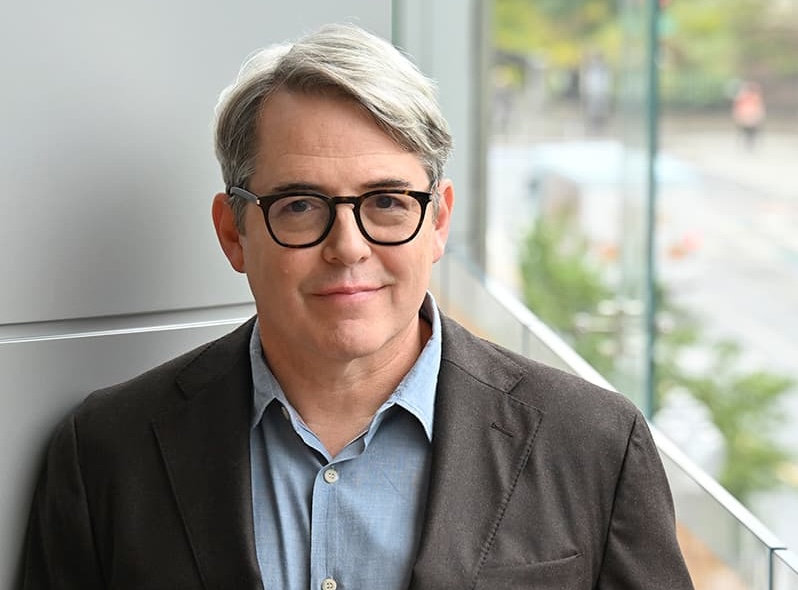

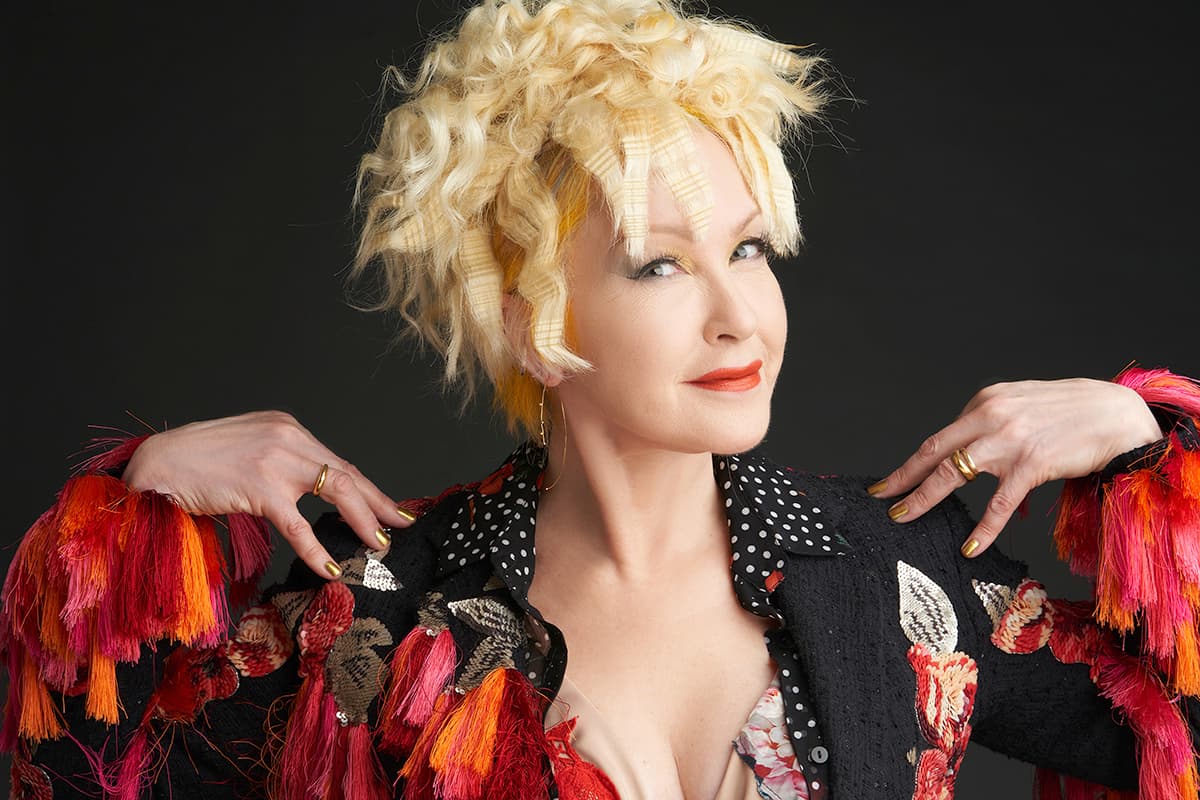















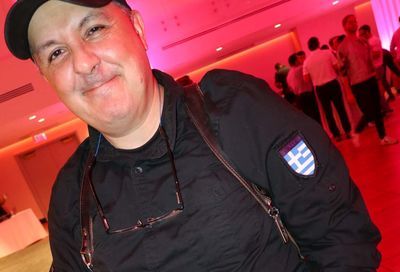
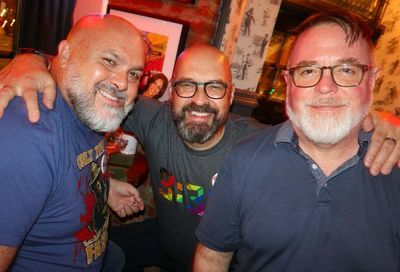
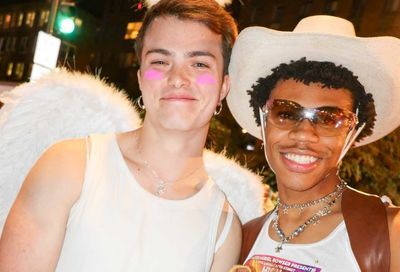
You must be logged in to post a comment.